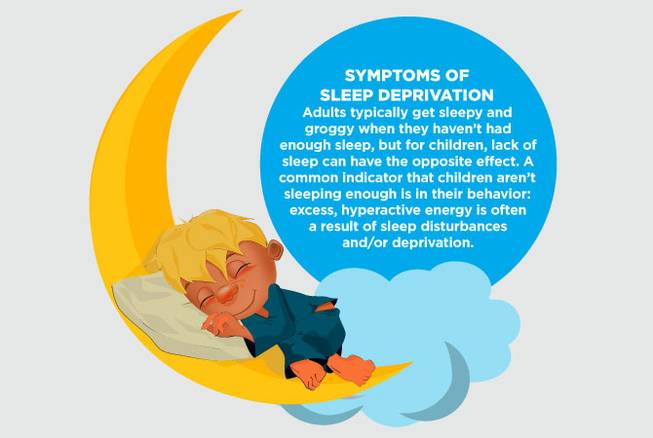
Tuesday, Dec. 26, 2017 | 2 a.m.
Meet the medical professionals in this story
• Constantine George, MD, Chief Medical Officer of EPITOMEDICAL, founder of Vedius app, and board-certified in internal medicine and pediatric medicine on staff at Sunrise Hospital
Everyone requires adequate, quality sleep each night, but it’s especially important for children because sleep is necessary for healthy development.
“The American Academy of Sleep Medicine has found that appropriate sleep duration, based on age guidelines, leads to improved attention, behavior, learning, memory, emotional regulation, quality of life, and mental and physical health. Inadequate sleep is associated with increased injuries, hypertension, obesity and depression — especially for teens who may have increased risk of self-harm,” said Dr. Constantine George.
While the Centers for Disease Control and Prevention estimates that 1 in 3 adults in the U.S. does not get enough sleep, many habits learned during childhood carry into adulthood, and establishing healthy sleep patterns early in life could help prevent disordered sleep later.
How much sleep should your child be getting?
The National Sleep Foundation notes that every child may be slightly different in how much sleep he or she needs, but in general, this is how many hours children should be getting for optimal health:
Newborns (0-3 months)
Recommended: 14-17 hours
May be appropriate: 11-13 hours, 18-19 hours
Not recommended: Less than 11 hours, more than 19 hours
Infants (4-11 months)
Recommended: 12-15 hours
May be appropriate: 10-11 hours, 16-18 hours
Not recommended: Less than 10 hours, more than 18 hours
Toddlers (1-2 years)
Recommended: 11-14 hours
May be appropriate: 9-10 hours, 15-16 hours
Not recommended: Less than 9 hours, more than 16 hours
Preschoolers (3-5 years)
Recommended: 10-13 hours
May be appropriate: 8-9 hours, 14 hours
Not recommended: Less than 8 hours, more than 14 hours
School-aged children (6-13 years)
Recommended: 9-11 hours
May be appropriate: 7-8 hours, 12 hours
Not recommended: Less than 7 hours, more than 12 hours
Teenagers (14-17 years)
Recommended: 8-10 hours
May be appropriate: 7-11 hours
Not recommended: Less than 7 hours, more than 11 hours
What about napping?
Children should have a daily afternoon nap until at least age 5. The time spent napping is included in the sleep-time recommendations, so if a toddler gets a total of 12 hours of sleep in a 24-hour period, 1-2 of those hours can be spent napping during the day.
Most infants sleep intermittently throughout the day and take multiple naps. Children older than 12 months should be limited to one or two naps each day. George notes that naptimes should be planned in advance to ensure they don’t occur too close to bedtime.
Symptoms of sleep deprivation
Adults typically get sleepy and groggy when they haven’t had enough sleep, but for children, lack of sleep can have the opposite effect. A common indicator that children aren’t sleeping enough is in their behavior: excess, hyperactive energy is often a result of sleep disturbances and/or deprivation.
Helping kids get on a regular sleep schedule
1. A daily routine is key, especially for younger children.
Children should wake up at the same time every morning, and go to bed at the same time every night. They also should have an overall sense of consistency throughout the day — meals, playtime, naptime and reading time should all occur at the same designated times. This can help children develop their internal rhythm, which can make bedtime a much easier process.
2. Adopt a bedtime ritual.
An hour before bed, kids should begin winding down. A bedtime ritual can signal to them that it’s time for rest. Turn off all electronic screens, dim the lights, brush teeth, bathe, put pajamas on, listen to calming music, settle in for a bedtime story — whatever works best for your child.
3. Create a “sleep-supportive” bedroom.
Children should be able to relax before going to bed, and an overly stimulating bedroom can be distracting. Be sure all toys are put in their place, their bed is cozy and they feel safe and secure in their surroundings. Security blankets and nightlights can be helpful as well.
4. Lead by example and adopt healthy sleep habits yourself.
Children observe and internalize so much of what’s going on around them, so model the positive behaviors you’d like to see them replicate.
Things to avoid around bedtime
• Electronic screens
• Eating meals or heavy snacks
• High-sugar products
• Caffeine
Note: Learn to recognize common, childhood sleep disorders and call your pediatrician if you’re concerned. Children can experience insomnia, nighttime-waking, snoring and sleep apnea. According to George, most sleep problems in children are easy to treat, so the sooner you discuss with your pediatrician, the better.
